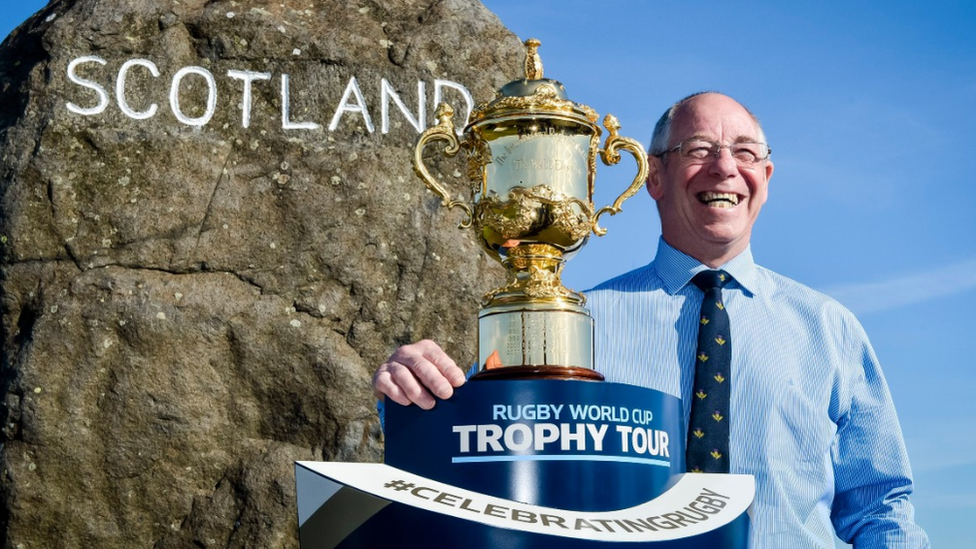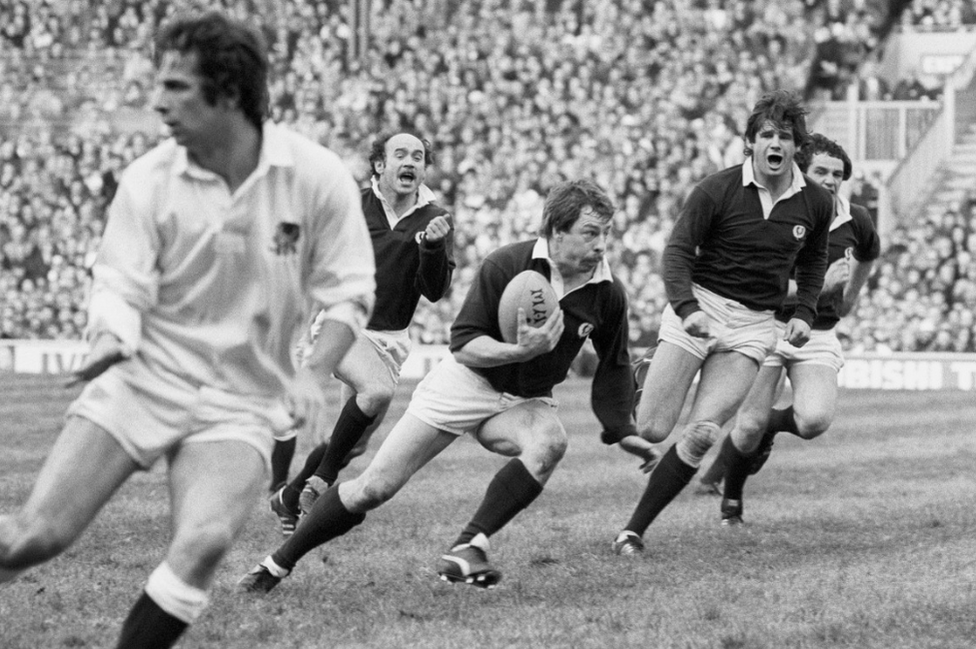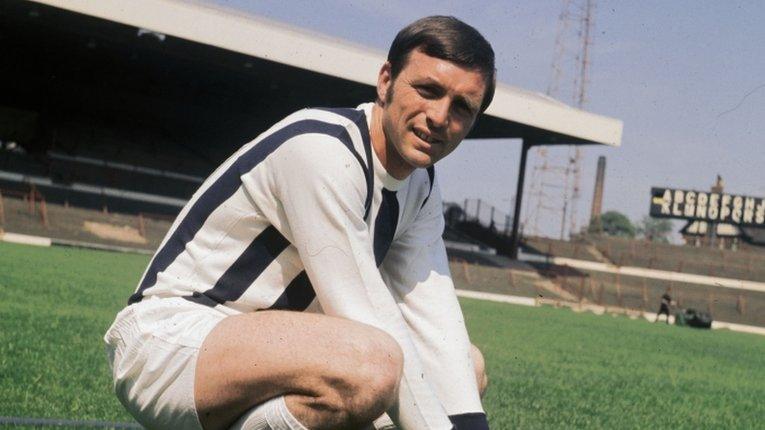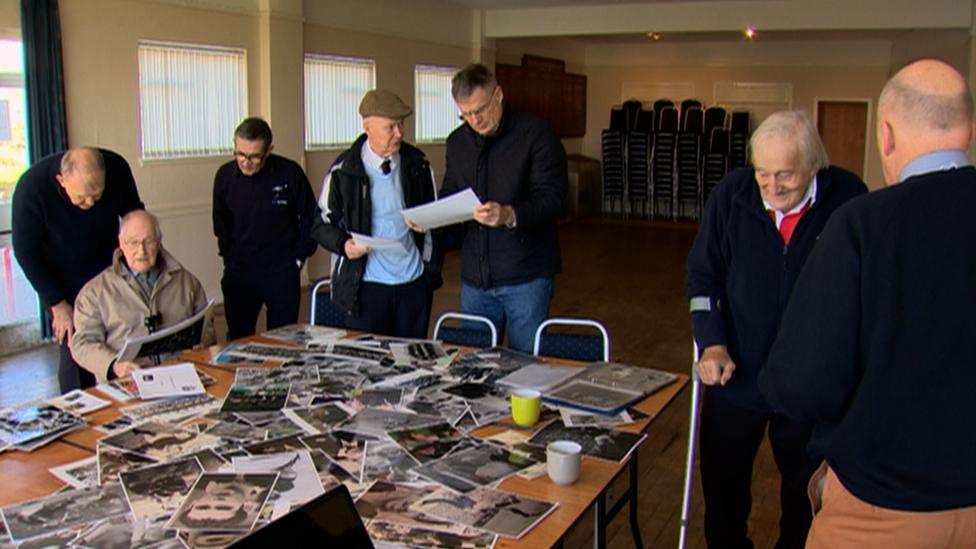Scotland and Lions rugby star Roy Laidlaw reveals dementia battle
- Published
The former Scotland captain and British Lions scrum-half believes his condition is linked to tackling
Roy Laidlaw, the former Scottish and British & Irish Lions rugby player, has revealed he has dementia.
The scrum-half believes the condition is a consequence of being a smaller player who had to do a lot of tackling in his career.
In recent years there has been growing evidence that repeated head injury in contact sports might lead to long-term brain damage.
But despite his challenges Laidlaw said he had "no regrets".
He first realised something was wrong a few years ago when he was working for the Scottish Borders Housing Association and was informed where his next appointment was.
Laidlaw told BBC Scotland's John Beattie: "I immediately turned round and I forgot where I was going. I thought 'There is something wrong here'."

Roy Laidlaw with the Webb Ellis trophy on the border between Scotland and England in 2015
As time passed his condition worsened and he had to give up his job.
Laidlaw, who spent his club career with Jed-Forest RFC, admitted: "I forget lots of things. I am not that old. I am only 67."
He believes his condition is connected to a playing career that saw him capped 47 times for Scotland, the highlight of which was the 1984 Grand Slam.
Laidlaw, who is 5ft 6in, was famously concussed in the penultimate match and spent a night in hospital before playing in the final game a week later against France.

Roy Laidlaw on his way to a try against England urged on by Jim Renwick (left) and BBC Scotland presenter John Beattie (right)
He said: "If you look at my history, I go back to primary school when I was introduced to rugby, I have played hundreds of games, something like 500 games.
"I am one of the smallest players that ever played rugby for Scotland, so you have to get down low and tackle.
"It is just inevitable that things like that are going to happen but I have no regrets whatsoever about my Alzheimer's because I have had a great life and I have enjoyed everything I have done."
As well as representing and captaining his country Laidlaw made four Test appearances for the British and Irish Lions during the 1983 tour to New Zealand.
Increased risk
Laidlaw, who has three sons and seven grandchildren, recently lost his wife Joy.
As well as the support of his family, he said he has been helped by his "great friends" and enjoys spending time at Jedburgh Golf Club.
Rugby is not the only sport which is coming under scrutiny for possible links to brain injury.
Last year, a study by Glasgow University found former professional footballers are three-and-a-half times more likely to die of dementia than people of the same age range in the general population.
High profile cases include Celtic legend Billy McNeill and England striker Jeff Astle.
And in the US the suicide of jailed former NFL star Aaron Hernandez renewed debate about the safety of sports where high impacts are common.
- Attribution
- Published21 October 2019

- Published2 May 2019

- Published15 February 2016
